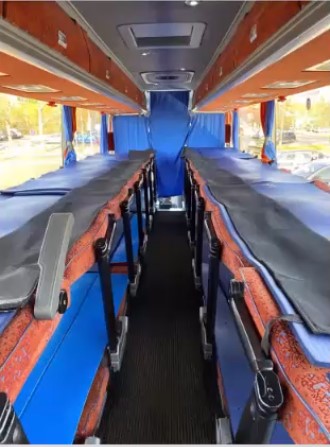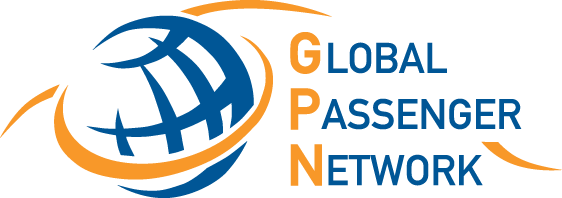The Coach Industry during and beyond COVID-19
Around 500 top-level managers in coach operating companies gathered on one of the largest online meetings in the industry to share their experiences and actions during these unprecedented and challenging times. Because of the current situation, most of the coach companies, who are depending on tourism, have to survive without any income for the next 5-6 months.
One of the top subjects was generating income during the COVID-19 period and various actions taken by members of GPN.
Helping tourists get back home
Several pivoting actions were mentioned. For example, one way the transport operators managed to generate income was by co-operating with cruise lines for passenger repatriation.
On the European continent, GPN members also helped in repatriating the expats and tourists that were caught during the lockdown in other countries.
More details were provided by Luis A. Pedrero – CEO @ Car Tour, Spain: “Our friends from Italy, Linea Azzura made a project to repatriate tourists from the cruising boats. They have prepared 40 coaches and briefed the drivers about the situation, especially about the fact that at least 80 of the boat passengers had COVID 19. Before starting the operation, all drivers were equipped with protective equipment. In total, Linea Azzura helped repatriated the passengers from 4 cruise ships that were blocked in Italy. The passengers were repatriated to Austria, Hungary, Romania, Bulgaria, Slovenia, Croatia, Czech Republic and also to Germany and Denmark before the former two countries closed the borders. It was a proactive action and it wasn’t easy. Both organizing this and the logistics were very difficult, because of the restrictions. To achieve that, with the restrictions and border closed, the colleague from Italy had to transport the passengers to the border, and from there the passengers were taken off the bus and taken by another bus on the next country. It was a success because we are a network, and everybody participated”.
Supporting the health care system
Also, some of the operators, like the ones in Germany, France, Bulgaria, Romania and others offered their support for faster transfer of patients between hospitals, especially since the healthcare workers and the ambulances struggled to cover all the emergencies.
The busses and motor coaches were also transformed in sleeper coaches being offered as extra space for hospitals in France and Spain.

“Our colleagues in France offered medical sleeper coaches. They have contacted the authorities to let them know they have these facilities. The medical authorities in Reines contacted them back. After making all the necessary disinfection and installing the equipment, they managed to offer some relief to the overwhelmed hospitals in the area”, explained Luis A. Pedrero.
Other operators, members of GPN helped hospitals with the transport of cargo for hospitals by coaches, offering coach services on regular lines to ensure social distancing.
Motorcoaches that usually this time of the year are used by tourists visiting the most exciting places in Europe are still using this crisis to transport the military units or even prisoners. Also, some members offered their support for individuals getting home, transportation of goods between provinces and more.
The cost reduction solution
The cost reduction is an important factor that enables companies to deal with the current situation. This is a time ideal to look into aspects of the business that may be overlooked or difficult to implement during normal operation periods, including training, maintenance, monitoring and reducing communication costs, processing drivers’ schedules, evaluating parts (if really needed), reducing insurance costs, revision of existing loans, etc.
“Coach operators focus on sales, getting the work in and doing it correctly. When the business is booming, we tent to look at profit rather than the costs involved. Now is the time to look at every aspect of our operation to understand what our costs are and what savings were made. Work will be slow in the short to medium term after the world economies start again, especially for tourism. There will be an excess in demand that will make the prices drop. It’s time for all of us to look into our own companies and see what savings we can make” said Mark Anderson, CEO of Anderson Travel.
How will the public transportation look after?
On the second webinar, the focus was on the future of public transportation and what should passengers except when the lockdown is over.
Jan Deman, director of BusWorld Academy mentioned that in April, the demand for public transportation was down by 78% comparative to the same period in previous years: “We lost a market share of 80%, still down in Latin and South America, but the demand is growing fast again in countries that are recovering”.
Tracking passengers in China
One of the countries where things are slowly getting back to normal in China. More details were provided by Li Feng, deputy director of Jinan Public Transport Group: “First of all, there’s an ongoing process of purification for each service, taking the deep disinfection every day”. We measure the temperature of each employee before entering the duty, and until now we have done 284k temperature tests. We also had a supply of 433k masks – the passengers are required to wear masks in the bus, and we also measure their temperatures. Then they show an ID which is scanned and we have a record of all the passengers that used the bus. To keep the social distancing, the maximum capacity now is 50% of the capacity of the bus”.
He also mentioned that the public transportation in Jinan is at 80% of the normal capacity, but since each bus is half empty, they had to increase the frequency of the buses.
All these measures increase the public transportation costs, especially since not only now there’s a need for more buses because of the social distancing, but also more staff is needed since apart from the drivers there’s at least one more person to measure passengers’ temperature.
Public Transportation issues during peak hours in Brussels
In Belgium, the lockdown is still in place, but gradually the country is opening.
“The situation in Belgium is in the middle of lockdown, schools, shops are closed”, said Elke Van der Brandt – Minister for mobility in Brussels. “There was an impact on our public buses since there’s a low of the demand for public transport. There are usually 6-8 people that are on each bus, and the frequency is 15% of what it was. People working from home don’t need buses. We provided masks for drivers, but it was waiting time until the masks arrived since the priority was the health care workers, and only after that the drivers. We are glad to see there is gratitude from the population to the public transport workers”. Belgium has started on the 4th of May the exit strategy from lockdown. Life is restarting, shops and schools are opening.
Social distancing in buses
The social distancing is still required, and the passengers of the buses have to keep the 1.5 meters distance between. Masks are mandatory to wear on buses. “But is still difficult to keep distancing, so we must monitor that people respect distancing. It won’t be strict as now, just not overcrowded. And we will do extra cleaning our vehicles” said Elke Van der Brandt, who also mentioned that people are encouraged to walk or take the bicycles instead of the buses: “In Belgium, there is a tradition of the 9 to 6. And because of that, there are the peak hours/ We are asking everyone to change these hours, to start at 10 or 10:30, to stretch out the peak hours. This is not only to fight against Not only COVID but also to fix the peak hours on our public transport. If you love our public transport, go by bike or foot and leave the bus for those who can’t travel without the bus. 2/3 of the commute in Brussel is less than 5 km. If you only go for 5km or less a bike or even on foot is a better way. Solidarity is what we ask people to do”. She also mentioned that the authorities in Brussel are investing in 40 extra kilometres of zones for bicycles and also creating 100 km of slow zones for pedestrians. “If you use the car will be more traffic jams, public transport will be blocked as well. CHANGE TO BIKE!”
Ticket proses will not rise
When asked if the bus ticket process will go up because of the extra measures, she assured everyone this is not going to happen: “We don’t have more buses; we could use more. For now, all the drivers available are on the street. In other places in Belgium companies have margins in capacity, but not here. We won’t change the ticket prices; this won’t be the right answer for the moment. The buses are clean, but we are focusing on social distancing. The public transport is safe, but if you don’t need to take the bus, don’t take it”.
Long term microbial shield treatment for buses in New York
Craig Cipriano from the New York Metropolitan Public Transport (NYMPT – the largest public transportation system in the US) said that there is a disinfection circle in place on all the buses, every 72 hours, together with a long term microbial shield treatment. All employees have masks, gloves and sanitisers. The boarding on buses is made only through the rear door, and to make sure the driver is protected, there are barrier chains in all the buses. The NY Public transport also started an informational campaign, asking people to use the buses for essential transportation only and to wear masks in the vehicles.
There is a plan of reopening New York in the coming weeks, but for now, NYMPT maintains 70% of the buses for the peak times and 40% of the capacity for the normal rides.
Since the buses are mostly empty, the cost for the disinfection is high enough, the drivers and all the other employees still have to get their wages, Craig Cipriano mentioned that the service has cash flow issues, the finances are a concern, “but is more important to keep our employees safe”.
Private coach operators can help public transportation
Since in most of the countries the buses will only accept passengers up to 50% of their capacity, it means more buses will be needed in the future to cover the demand. And as it looks right now, the demand could be covered by the coach operators, the companies who were the most affected on the industry. Still, it’s not going to be that easy. Both Craig Cipriano and Elke Van der Brandt said some unions won’t accept the private coaches into the public system that easily. “Here in NY we have been approached by coach operators and we are keeping them in mind. We will have to discuss with the unions, but these are unprecedented times”, said Craig Cipriano. “In Brussels – at this moment we’re not using this option. Is an inspiring model, but we are full public owned, it’s an unionised situation, lots of regulation and we need serious regulation adaptation before we can do it. But I wrote it down as a solution in future”, added Elke Van der Brandt.
Coach operators during COVID-19 in India
In India, the lockdown is affecting 1.7 million buses and over 20 thousand operators. The President of Confederation of Private Operators in India, Prasanna Patwardhan said that “operators are barely surviving. As of now, operators mostly survive because of the overloading of passengers during peak time by almost 200% capacity of seats. For example for a bus of 32 +18 – a capacity of 50, we have on peak time, 100 people”. But that is only for some of the services, especially for intercity. For other operators to survive, there is a need for support from the government. Prasanna Patwardhan was the first to mention the increase in pricing: “If your capacity is less, the cost will increase. It will be interesting to see if people are willing to pay more”.
Partnership between GPN and Busworld
GPN together with Busworld managed to gather together the majority of coach operators, trying to find the best solutions for short and long term.
In regards to this partnership with Busworld Academy, Agnes Pastuszak, Chairman of GPN, said: “For all of us in the coach industry, initiatives are undertaken, like the webinar organized by Busworld Academy, helps bring us all closer. Through these initiatives, we have the opportunity to exchange views and ideas that may help us face this crisis. GPN is a family of coach operators from around the world and we take pride in sharing our experiences, views and ideas amongst our family members. Given this, it was an honour for us to be a part of such an important initiative and partnering with Busworld Academy with such great success. We look forward to the next webinars which will also include interesting topics.”
Jan Deman, Director of Busworld Academy, added “The Busworld Academy webinars and seminars focus on the industry itself. Key speakers in our initiatives are operators, bus manufacturers, suppliers, etc. That is why we appreciate this cooperation with GPN so much. Our joint thinking starts from the strength of the sector itself, and from the services we can provide to society. We work closely with authorities at all levels and are glad to represent the voice of the private bus & coach industry in this.”

